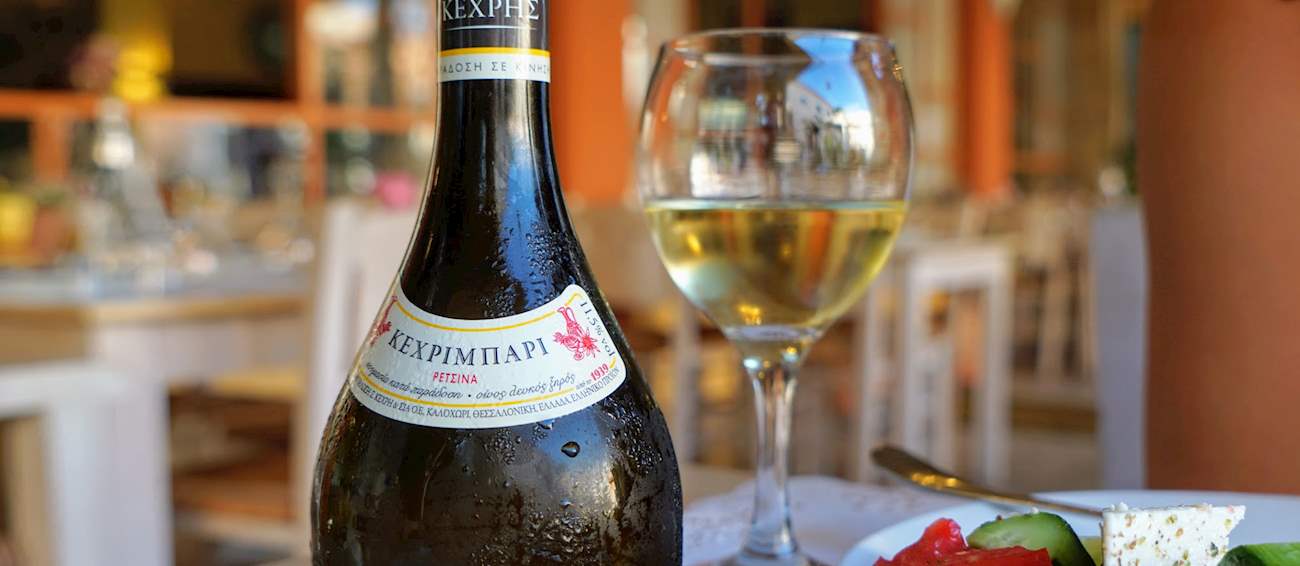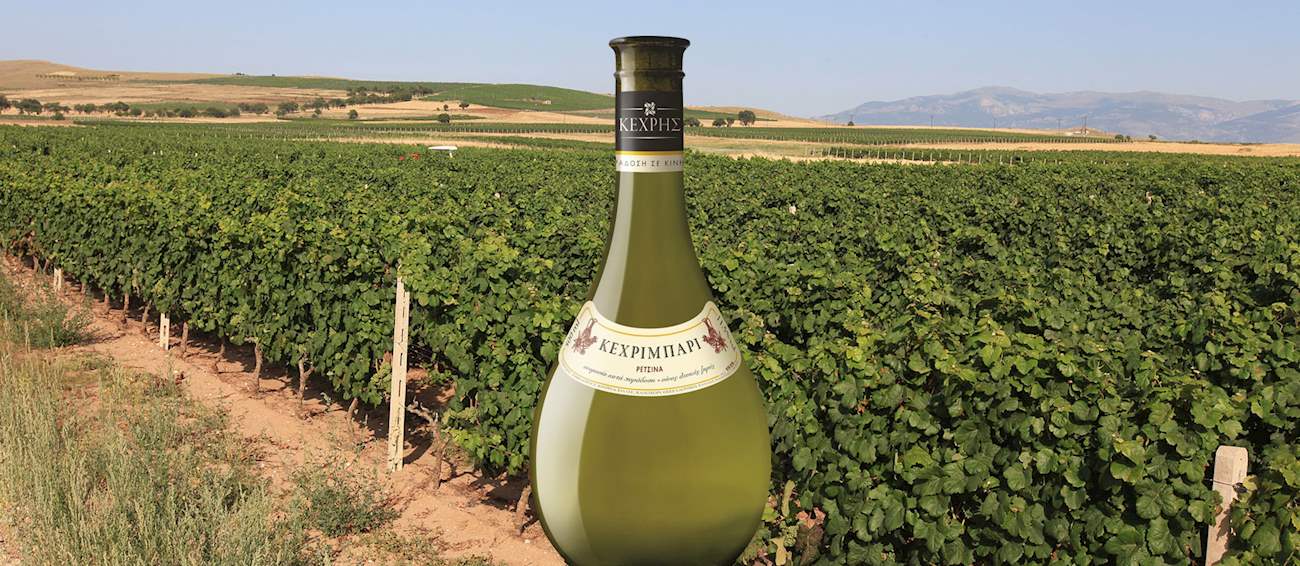(Ρετσίνα)
Retsina is an ancient Greek wine that is flavored with resin—a sticky sap that is typically secreted by pine trees. Historians believe that the resin has been used in Greece for over four thousand years, and while its initial purpose was to seal and insulate wine in clay amphorae, it was also used as a preservative, flavoring, and medicine.
For modern Retsina wines, natural resin, usually Aleppo pine, is added to the wine during fermentation. It is traditionally made with white or in some cases rosé wines, while the typical grapes include the native Savatiano, Assyrtiko, Rhoditis, and Athiri.
Although this wine style is produced in different regions, it is mostly associated with Boeotia and Euboea, but Attica has remained its most important stronghold. Retsina has seen a significant upsurge in popularity in the mid-20th century, which eventually caused an influx of low-quality wines, in which resin was mainly used to cover up the poor flavor. Read more
In the years that followed, this led to a decrease in popularity and loss of reputation, and it was mainly considered as a bland table wine served in Greek taverns. Despite its bad reputation, in recent years, some producers were determined to put Retsina back on the market by producing great-quality versions with exceptional base wine.
The best expressions of modern Retsina do not have much in common to the low-quality styles from the past. They are typically more delicate, and though they can significantly vary in style, most wines are crisp, aromatic, and herbaceous, while the aromas often include herbs, green fruit, citrus, or flower blossoms, and naturally, all wines will have a subtle pine flavor.
Retsina should always be served well-chilled, and it pairs well with bold and flavorful dishes. It is an excellent accompaniment to Greek meze, fried seafood, vegetables, grilled meat, and traditional Greek dishes.
Best Retsina



